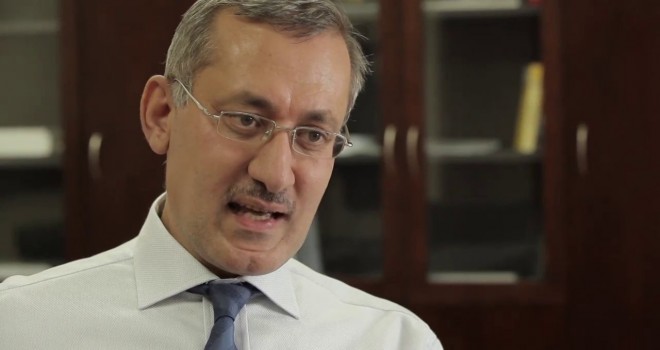
Islam and Sustainable Development
New Worldviews
Odeh Rashed Al Jayyousi, Royal Scientific Society, Jordan
In Islam and Sustainable Development, Odeh Al-Jayyousi addresses the social, human and economic dimensions of sustainability from an Islamic perspective. Islam is sometimes viewed as a challenge, threat and risk to the West, but here we are reminded that the celebration of cultural diversity is a key component in Islamic values. Promoting common understanding between East and West, this American-educated, Middle Eastern-based author offers something broader and deeper than conventional Western ways of thinking about sustainability and presents new insights inspired by Islamic worldviews.
Drawing on his roles as both academic researcher and senior development practitioner, Professor Al-Jayyousi applies his deep understanding of Islamic values to contemporary environmental, financial and social conflicts and crises and defines a framework for sustainability embracing local, regional and global perspectives. He also addresses how education might produce innovation, knowledge creation and development to support a new paradigm for sustainability that re-defines what constitutes good life, beyond consumerism and the production of waste.
This book will interest policy makers, development and donor communities, funding agencies and banks in the Islamic World and beyond, as well as those with a professional interest in planning and in environmental and conservation issues. Scholars of Islamic and Middle Eastern studies and more broadly, those with an academic interest in cultural and religious studies, will find that this book in Gower’s Transformation and Innovation Series is perhaps the most substantial work yet on sustainable development from an Islamic perspective.
Contents
Foreword, His Royal Highness El Hassan Bin Talal of Jordan; Introduction: reflections and personal journey: in search of insight; Sustainable development revisited; A framework for sustainable development: Islamic worldviews; Good governance and justice (adl); Beauty (ihsan) and sustainable development; Social capital in Islam (arham); Pollution, corruption (fasad) and climate change: Islamic perspectives; Education for sustainable development; Epilogue; Index.
About the Author
Odeh R. Al-Jayyousi is the Vice President, Science and Research, of Jordan’s Royal Scientific Society. Prior to taking his current post, Professor Al-Jayyousi was the Regional Director at the West Asia/ Middle East Regional Office, of the International Union for Conservation of Nature (IUCN). He was awarded his Masters and then in 1993 his PhD from the University of Illinois at Chicago, in Urban Planning and Public Policy Analysis. He taught for 10 years at the Applied Science University, Jordan, where he became Professor of Water Resources and Environment and Dean of Research. Professor Al-Jayyousi has worked in the US, at the City of Chicago’s Department of Planning, and at the University of Illinois’ Center for Urban Economic Development. As a consultant, he has advised EU and UN agencies, the World Bank, and GTZ. He has published several scientific articles in international journals.
Reviews
The strength of the book is that it covers some of the blind spots in the current economic models by introducing a set of Islamic notions that might help to frame and develop a new model for sustainability’.
Professor Zakia Mishal, Yarmouk University, Jordan
‘The book brings a much-needed and fresh perspective to the traditional economic development model. It highlights several “blind spots” in current economic development approaches, and proposes an alternative approach. The author employs his vast experience in giving new meanings to key Islamic concepts and principles, beyond the bounds of Man’s relation with God. Very few books have provided such a comprehensive and illustrative analysis of what and how Islam can contribute to advancing the debate on sustainability and its implication on economic development, social progress and quality of life.’ Dr. Walid Abdelwahab, Islamic Development Bank.
‘Development methodologists and theorists who anticipate or currently support development activities within the West Asia – North Africa region and who are seeking a language which will add inspirational value to technical approaches may find what they are looking for in this volume.’ His Royal Highness El Hassan Bin Talal of Jordan, Chairman, West Asia-North Africa Forum
Extracts from this title are available to view
Foreword by His Royal Highness El Hassan Bin Talal of Jordan
Chapter 1 – Sustainable Development Revisited
Source: http://www.ashgate.com/

